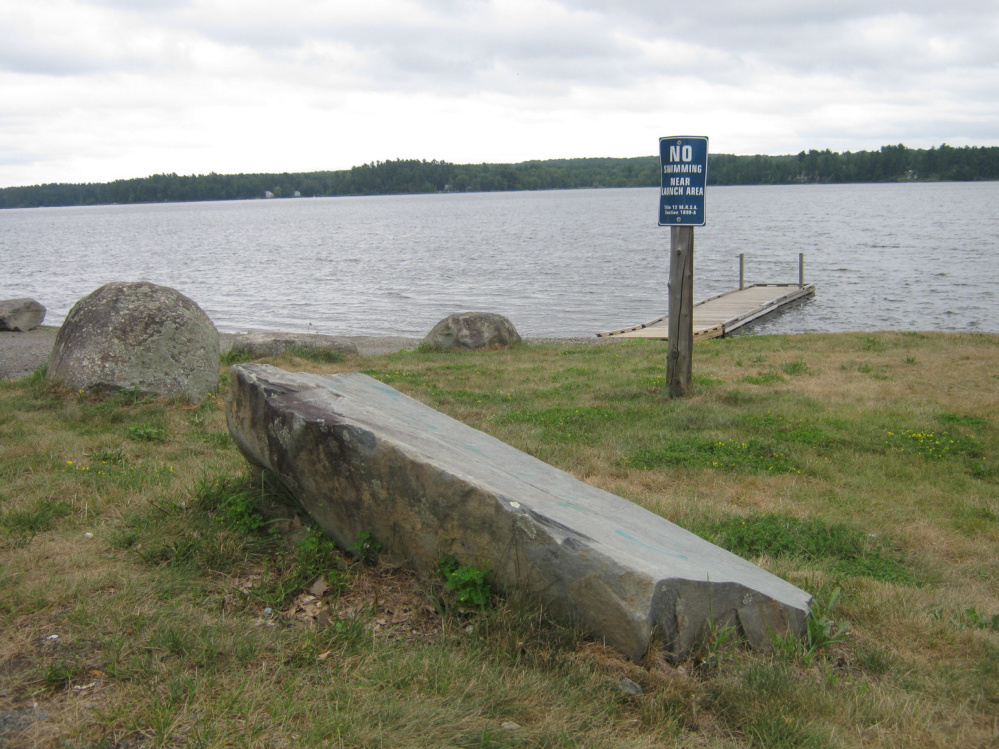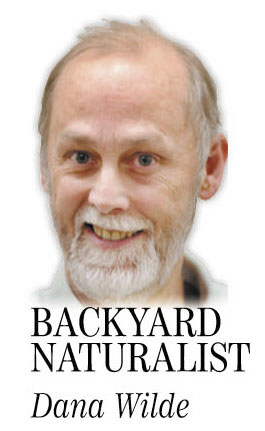If you get out a map of Maine and draw a straight line from Bangor to Augusta, then a perpendicular line from Pittsfield to Belfast, the intersection of the resulting cross lands not far from my house in Troy. In the woods, I mean. You can’t see the house from the road.
I landed in Waldo County nearly 30 years ago. I had lived most of my life in and near Portland with a side year in Orono, a couple of academic years in upstate New York, and visits to places like New York City, Denver, London, Athens (Greece), plus I got lost once on the creepy ancient back roads of western Ireland and had done a good deal of camping in Oxford and Franklin counties with my outdoorsman friend Phil Poirier, who now lives in Farmington. I felt like I had a handle on the difference between urban and rural.
When I got to Unity, it seemed like the edge of the wilderness. No matter where you live, your eye has filtering habits. For example, when was the last time you remember seeing telephone wires — even though they drape practically every road you travel? Your eye filters them out. When you live in the country, your eyes filter out trees because they’re everywhere. Around a city, your eye filters out buildings because, like trees in the country, they’re simply everywhere. When you travel from home in the city to a rural area, your eye continues to filter out buildings, suggesting that the rural landscape is pretty sparsely settled. For all practical purposes, to your eye, no one’s home. Even though Unity’s population has been in the neighborhood of 1,200 to 2,000 people for decades. Even after I settled into Unity, Troy next door seemed like the wilderness between Unity village and Dixmont corner on the way to Bangor. Troy’s population in 2010 reached 1,000.
Maybe that was part of what was going on when around 1989 state officials got the bright idea of creating a dump for low-level nuclear waste in the Unity wetlands. To the 2,000 or so people who lived there, including me at the time, it just seemed insane. Who in their right mind would propose to dump radioactive waste — no matter how low-level — into a holding tank in a wetland surrounded by thousands of homes, businesses and (key term) people? About halfway into the public-input meetings, I realized what was going on: They were seeing the landscape through the same filter I saw it when I first arrived from Portland. While the rural dwellers saw homes, businesses, trees and people practically everywhere, the urban dwellers saw trees and not much else. To them, no one lived here to speak of. Perfect place for a dump.
Luckily, the people who could see the buildings and people prevailed, and Unity did not become a nuclear waste receptacle.
So what am I driving at here? There’s a big difference between the country and the city, which amounts, really, to differences in perception, which is to say, states of mind. OK. But further, there’s a difference between the country and the wilderness.
This came home to me at a town meeting awhile back where the pluses and minuses of animal control officers were being, um, debated. Not to put too fine a point on it, but some of the country neighborhoods were experiencing barking dogs 24-7. This problem is thousands of years old. Some people were of the mind that the owners should be required to silence the dogs. Others were of the mind that barking dogs are no problem at all because, not to put too fine a point on it, this is the country; if you want city rules, go live in the city. One dog owner defiantly stated that she allowed her dogs to chase deer and she’d continue to no matter what any fascist (my word, not hers, characterizing her implication) animal control officer tried to dictate to her. My neighbor opined that the local game wardens would probably be interested in that information, but anyway.
What was going on, I figured out, was that, to people who had lived in the woods all their lives — meaning in some cases for generations — the woods and their own homes had for so long been so far from settled areas that what they saw when they got up in the morning was, basically, the wilderness. The same lonely, intractable expanse of woods, bog and mucky, bug-infested logging tracks their forebears had seen and taught them to see. Their filters weren’t picking up the fact that the woods now have neighborhoods. It’s the country here, but — emphatically — it’s not the wilderness.
Thoreau, 170 years ago when non-native people still saw the Maine woods as a wild animal, was really interested in the middle distance between wilderness and civilization. In the wilderness, the places human beings have not yet “redeemed” for civilization, is the “wild,” which he insists over and over in different ways, is essential to our spiritual lives. “Life consists with wildness,” he says in “Walking.” “The most alive is the wildest. Not yet subdued to man, its presence refreshes him.” And maybe our sense of the word “refreshes” understates the vital intensity Thoreau has in mind.
When he sets out from the last outpost at Mattawamkeag on his trip to Mount Katahdin, he’s exhilarated: “There was now no road further, the river being the only highway, and but half a dozen log huts confined to its bank … and beyond, was a wholly uninhabited wilderness stretching to Canada. Neither horse, nor cow, nor vehicle of any kind, had ever passed over this ground.”
He is prepared to enter a wholly other, “refreshing” state of mind. Although, interestingly, what you find out in “Ktaadn” is that, while the Maine woods in 1846 were definitely wild, they were not exactly “wholly uninhabited,” either. His expedition moves from one established campsite and loggers’ cabin to the next. People have been, and are, there. Just not very many. It’s wild, though.
Out of some habit of collective mind, we’ve kept thinking so. Somehow, nothing is as simple as it looks. When you drive up U.S. Route 201 to Jackman, things start seeming remote. You would not want to get lost in those woods. You feel like it must be the wilderness.
But interestingly, as soon as you cross the border into Quebec, you’re back in civilization so thick it might as well be South Portland. Could the wilderness really be just a few hundred feet away?
“Who are we? Where are we?” Thoreau asked, half-panicked on the side of Mount Katahdin.
Geraldine Largay, a person seemingly like most of the rest of us, got lost and tragically died while hiking on the Appalachian Trail near Sunday River a few years ago. I could break my leg and die in the Troy woods between Route 9 and the Webster Cemetery Road under the right (wrong) conditions. At some point, conditions grow wild and it involves a lot more than preponderances of trees or buildings. There are middle distances, transition zones, from the city to the country and from the country to the wilderness whose borders are hard to see. And getting harder all the time, between cellphone towers, GPS, and state of the art camping equipment.
You’ve got to get your mind in focus when you decide to hike, or live in the country, or install a radioactive waste dump, or ditch environmental protections. The woods, like practically everything, are not exactly as they appear.
Dana Wilde lives in Troy. You can contact him at naturalist1@dwildepress.net. His recent book is “Summer to Fall: Notes and Numina from the Maine Woods” available from North Country Press. Backyard Naturalist appears the second and fourth Thursdays each month.
Send questions/comments to the editors.




Success. Please wait for the page to reload. If the page does not reload within 5 seconds, please refresh the page.
Enter your email and password to access comments.
Hi, to comment on stories you must . This profile is in addition to your subscription and website login.
Already have a commenting profile? .
Invalid username/password.
Please check your email to confirm and complete your registration.
Only subscribers are eligible to post comments. Please subscribe or login first for digital access. Here’s why.
Use the form below to reset your password. When you've submitted your account email, we will send an email with a reset code.